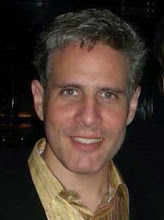Most of the Indians I speak with are curious about the American elections, not as much with respect to the issues as with the fact that Obama is a person of color. Or maybe more so because America has never had a minority or female president. Folks here find this sort of skewed representation perplexing, because America is supposed to be the quintessential democracy. The country whose currency bares the slogan "E Pluribus Unum" (out of many, one) to demonstrate its commitment to a government of the people, by the people, and for the people. But to Indians it looked as if Americans had just been paying lip service to the ideal until recently.
You see, in the mere 61 years of its democratic rule, India can boast of a female president, a Sikh PM, an Italian-born female as president of the ruling party, and a former president who is a Muslim. Indians actively demonstrate their value in diversity. In fact, it is common for school children to enact a play at least once a year (usually near Independence Day or Republic Day) based on the importance of Hindu, Muslims, Sikhs, and Christians living and working together cooperatively.
No doubt, one of India's greatest assets is its diversity, which I feel has accounted for its resiliency over the millennia. Living System Theory shows us how beneficial diversity is in all systems of life--biological, ecological, sociological, economic, etc., and how nature has its own ways of balancing organisms when they become too large, too powerful, too deviant, etc. It also explains how systems that are too centralized or homogeneous often pay the largest price when corrections take place.
Obama's election formally signals the onset of this corrective period. And I feel that America will find the bottom soon (and that it won't be so deep). However, I believe that because of the extent to which globalization has affected our world in the past decade, America's ability to balance itself will be dependent on its ability to increase its interdependence with other countries.
Here is an area where I think India will serve the US well (far better than as a destination for outsourcing)--helping to improve the quality of life by sharing a wealth of knowledge on the science of life, related to yoga, pranayam (breathing techniques), Ayurveda, meditation, etc. Such knowledge will help people find ways of balancing themselves physically, helping them get in tune with their bodies and to reduce stress and anxiety. It will help them stay healthy with inexpensive, natural healthcare, including herbal remedies and massage therapies. And spiritually, people will learn to find greater joy with what they already have in their lives rather than by acquiring more and more material goods.
Making this type of knowledge available in a current context with modern technology is Jiva's mission. We've been working for the past 14 years to create an array of tools, courses, and resources in the area of life-wellness based on Vedic wisdom. It seems that things are suddenly coming together--a tipping point of sorts, where our work may soon be of value to a much wider audience.
We're excited about the opportunity to share these assets and to be an active part of the balancing process. Get ready for some informative articles and videos in the coming days and weeks from Dr. Satya Narayna Dasa, Dr. Partap Chauhan, and our team members. In the meantime, let's remember:
E Pluribus Unum / Anekta Mein Ekta
(Out of Many One / Diversity in Unity)
Steve
Tuesday, November 4, 2008
Subscribe to:
Post Comments (Atom)




No comments:
Post a Comment